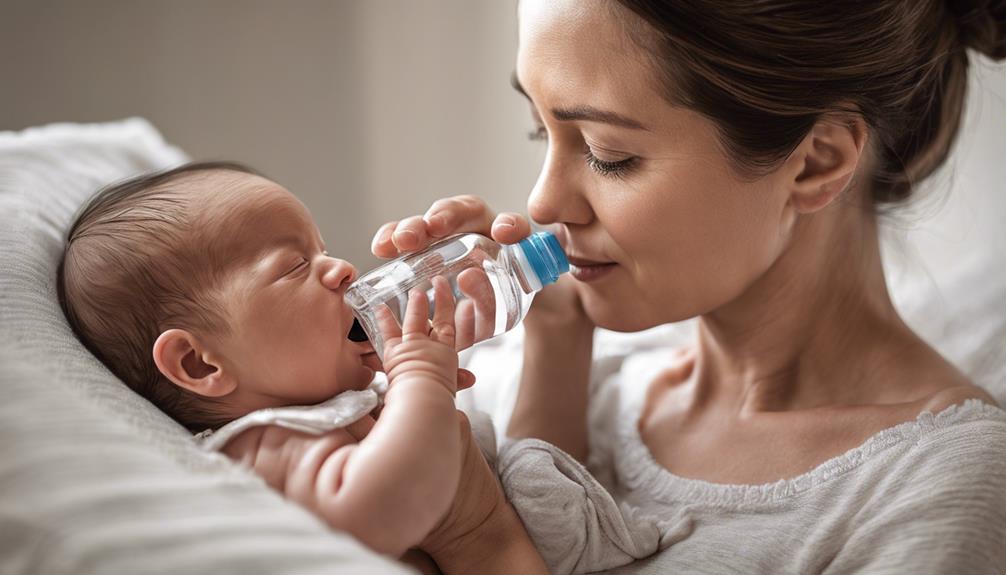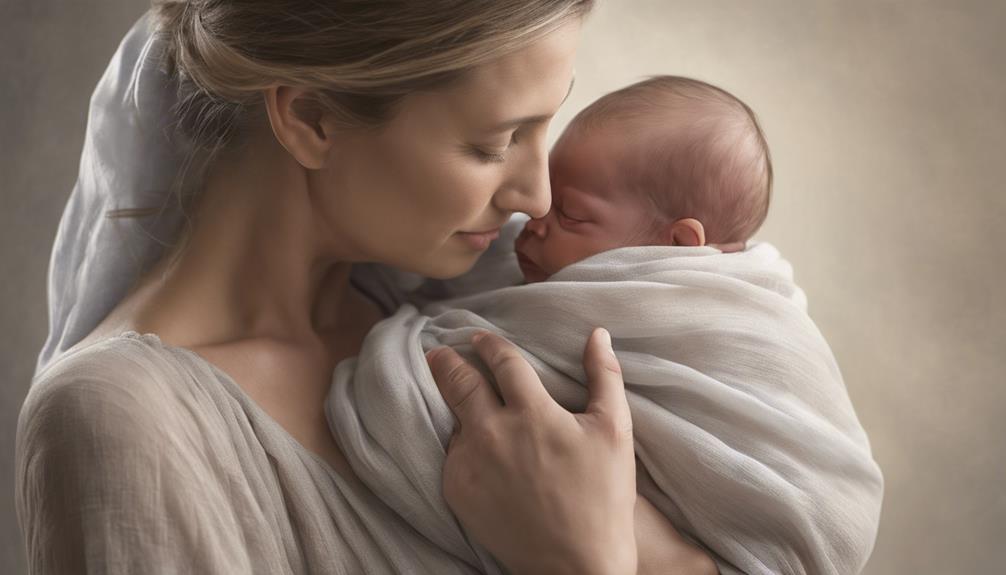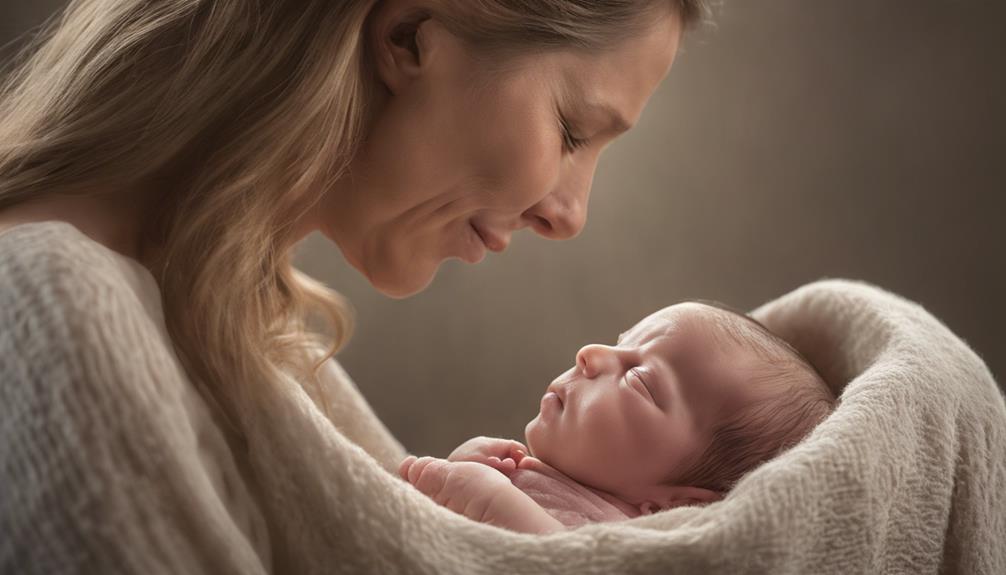If you've noticed your newborn struggling with hiccups, you might be wondering how to help them find relief. While giving water can be a common suggestion, it's important to approach this carefully to make sure your baby's safety and well-being.
Before you consider offering water, it's vital to understand the reasons behind newborn hiccups and the potential risks involved in giving water too soon.
Stay tuned to discover the precautions you should take and the proper steps to administer water that can help ease your baby's hiccups effectively and safely.
Key Takeaways
- Consult a pediatrician before offering water to newborns.
- Administer room temperature water with a clean dropper.
- Introduce water carefully to prevent choking risks.
- Consider water for hiccups only after the baby is 6 months old.
Reasons for Newborn Hiccups
Newborn hiccups may seem concerning to new parents, but they're actually quite common and often harmless. These adorable little jerks are usually caused by your baby's immature digestive system or even air swallowing during feedings. They might sound worrisome, but in reality, they can be quite helpful. Hiccups can actually help your baby release any trapped air in their tummy, making them feel more comfortable. It's like a natural little burp that helps things settle down.
When your baby is getting the hiccups, there's no need to panic. Remember, it's a normal part of their development. While it might be tempting to give your baby some water to help with the hiccups, it's best to avoid doing so. Water can actually be harmful to newborns and interfere with their feeding and digestion. Your baby is already getting all the hydration they need from breast milk or formula, so there's no need to offer water at this stage. If you're concerned about your baby's hiccups, it's always a good idea to consult with your healthcare provider for the best advice on how to manage them effectively.
Precautions Before Giving Water

If you're considering offering water to alleviate your newborn's hiccups, it's important to take certain precautions to guarantee their safety and well-being. Hiccups often occur in newborns and can be distressing for both the baby and parents. Before reaching for the bottle, make sure to consult with your pediatrician to ensure it is appropriate for your baby. Additionally, remember these key precautions:
| Precaution | Description | Importance |
|---|---|---|
| Consult with your pediatrician | Seek professional advice before introducing water to your newborn for hiccups. | Crucial |
| Ensure your baby is at least 6 months old | Water should only be given to babies older than 6 months to avoid potential health risks. | Critical |
| Check for signs of dehydration | Confirm your baby is not dehydrated before offering water, as this could worsen their condition. | Essential |
Taking these precautions will help ensure that giving water to your newborn is done safely and effectively.
Steps to Administer Water
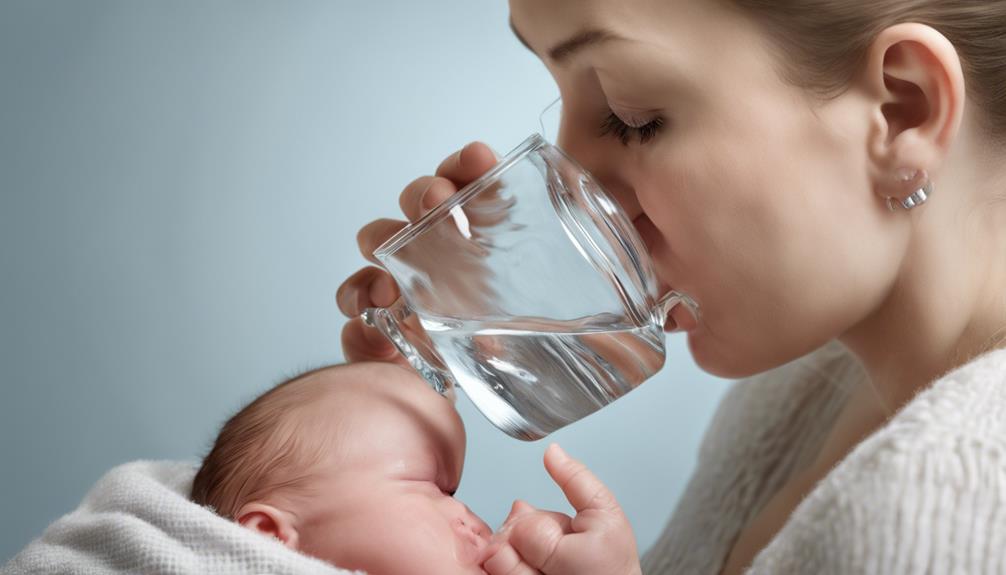
When administering water to your infant, remember to use a clean and sterilized dropper for giving small amounts slowly to prevent choking or gagging. Here are the steps to administer water effectively:
- Prepare the Water: Fill the dropper with a small amount of room temperature water.
- Position Your Baby: Hold your baby in an upright position to help them swallow the water easily.
- Administer the Water: Gently place the dropper on the inside of your baby's cheek and release the water slowly. Allow your baby to swallow at their own pace.
Tips for Effective Relief
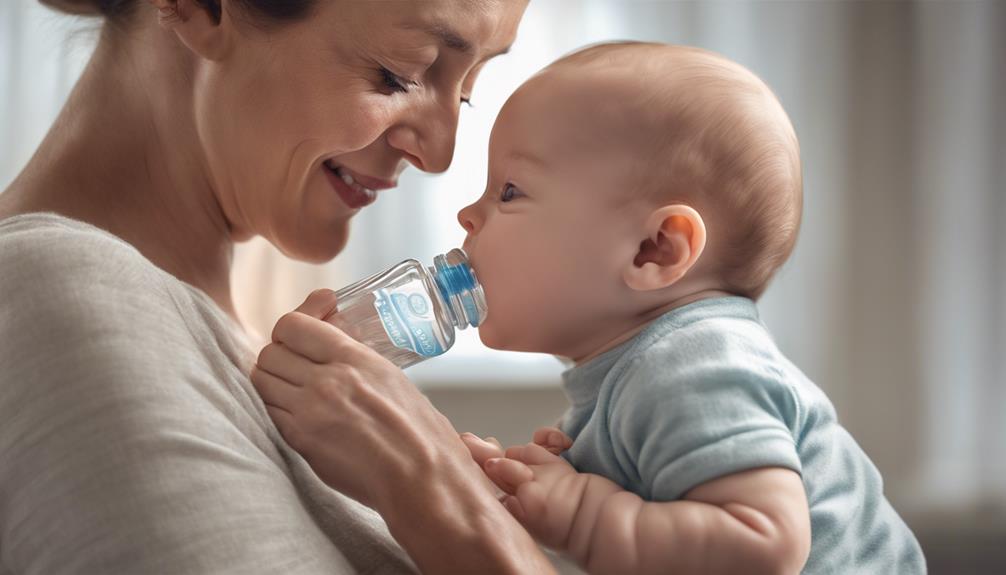
To effectively relieve your newborn's hiccups, consider implementing these practical tips. When your baby has hiccups, try burping them by placing them over your shoulder and gently patting their back.
Offering your baby small sips of water can also help ease the hiccups. Remember not to give large quantities of water to avoid upsetting their stomach, and it's best to wait until they're at least 6 months old before introducing water for hiccups.
Make sure the water is at room temperature to prevent any shock to your baby's system. These simple steps can often provide relief for your baby's hiccups without the need for any medication.
If the hiccups persist or if you have any concerns, consulting with your pediatrician is always a good idea to guarantee the best care for your little one.
Consulting a Pediatrician

Wondering how consulting a pediatrician can benefit your newborn's hiccup management? When it comes to your baby's well-being, seeking professional advice is essential. Here's why:
- Personalized Guidance: Pediatricians can offer tailored recommendations for managing your newborn's hiccups, taking into account their specific age and health conditions. This guarantees that any interventions are safe and appropriate for your little one.
- Avoiding Risks: By consulting a pediatrician, you can steer clear of potential complications that may arise from giving water to your baby for hiccups. They can provide insights on safer alternatives and techniques to alleviate hiccups effectively.
- Long-Term Care: Pediatricians can also advise on long-term strategies to prevent hiccups, such as proper feeding practices, burping methods, and nipple sizes. This holistic approach not only addresses current hiccups but also sets the foundation for your baby's future well-being. Trusting their expertise can lead to better outcomes for your newborn's health.
Frequently Asked Questions
Can a Newborn Drink Water for Hiccups?
For hiccups, avoid giving water to newborns. It's best to burp, pat the back, or wait it out. Water can affect feeding and nutrient intake, leading to water intoxication risks. Stick to breast milk or formula for hydration.
How Do I Relieve My Newborns Hiccups?
To relieve your newborn's hiccups, try gentle patting or changing their position. Encourage burping or continue feeding. Safe remedies include waiting it out and providing comfort. Avoid giving water; opt for non-invasive methods instead.
Is It OK to Lay Baby Down With Hiccups?
When your little one has hiccups, it's generally safe to lay them down. Keep an eye on them and offer gentle comfort. If hiccups persist or are worrisome, seek medical advice. Your baby's well-being comes first.
What Liquid Is Good for Baby Hiccups?
For baby hiccups, water is a gentle and safe choice. It can calm their reflex and soothe the diaphragm without any extras. Stick to small sips of plain water; it's the best option for your little one.
Conclusion
To sum up, remember that giving water to newborns for hiccups should be done with caution and under the guidance of a pediatrician.
While water can be helpful in alleviating hiccups, it's important to make sure that it's done safely and in moderation.
Always prioritize the well-being of your baby and seek professional advice if you have any concerns.
Stay informed and be prepared for any unexpected twists in your parenting journey.
